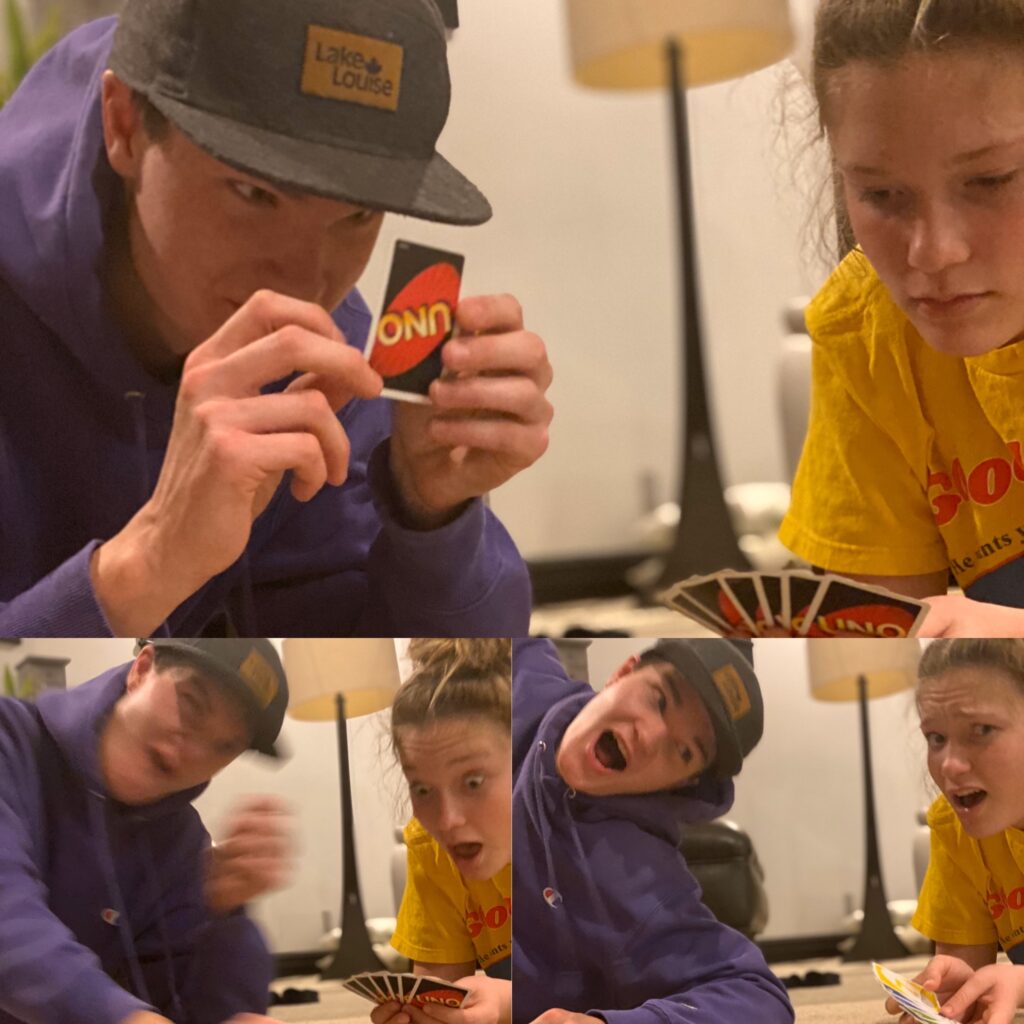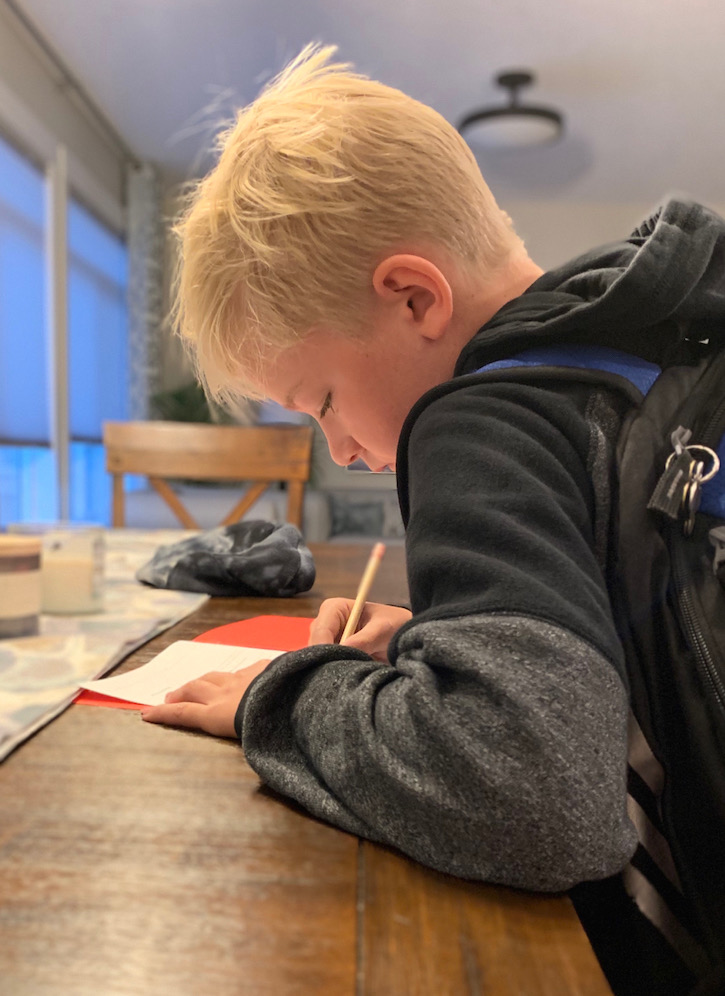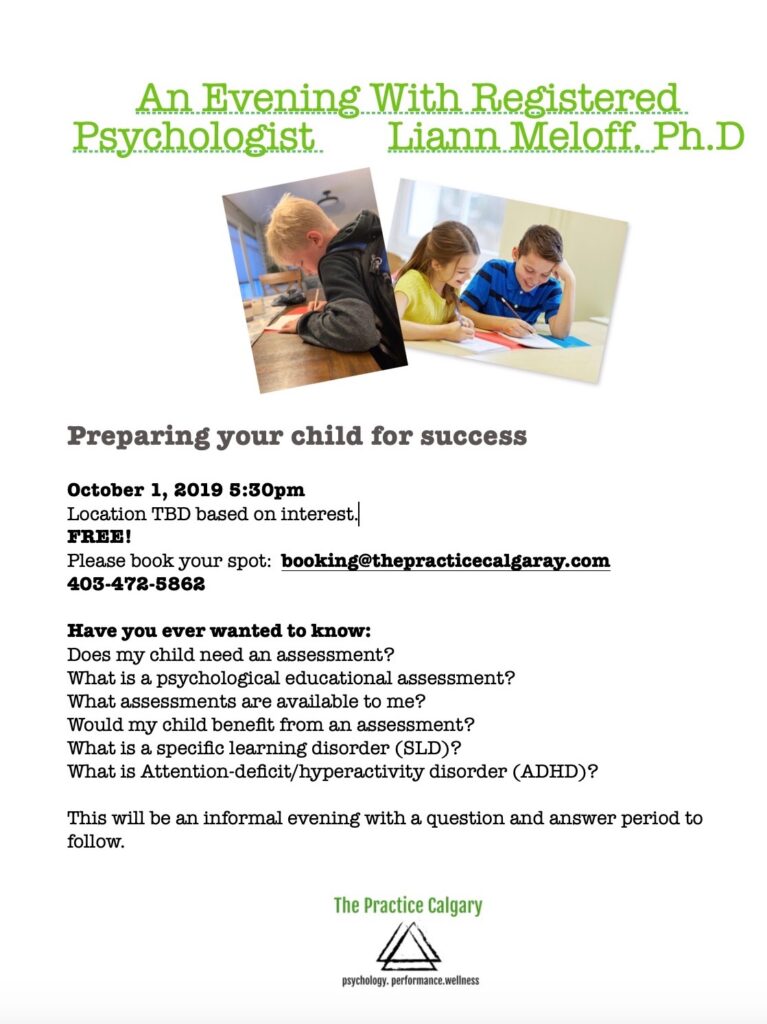One of our wonderful team members, Dr.Liann Meloff, took time to share her thoughts for parents who are trying to adjust to the idea of homeschooling their children.
As we have hit the last week of March, many of us had planned to be enjoying spring break with our children on a tropical island, taking hikes in the desert, skiing in the mountains or having a staycation with daily outings. Instead we are all wondering how we are going to keep our kids occupied and more importantly, how will we ensure they learn everything they are supposed to for the last part of this school year. As most are not nor have ever been teachers, how to implement “home schooling” is the challenge parents are now facing. As a psychologist and previous educator, I encourage parents to focus on structure (routine), balance and of course fun!

Creating structure and routine for your children around schooling at home (and other areas) can be valuable in reducing monotony and increasing efficiency.
Structure. Schools provide children structure from the first morning bell to recess and lunch to the afternoon bell. Structure is also implemented throughout the day with core subjects and non-core subjects. Creating structure and routine for your children around schooling at home (and other areas) can be valuable in reducing monotony and increasing efficiency. Structure does not have to mimic what your children had at school, however beginning with the simple basics of getting up at the same time, having a shower, changing their clothes, and eating breakfast can help with productivity for the day. It also helps to promote and maintain normalcy. Creating a schedule with your children provides an outline for what is expected. Schools focus on core subjects in the mornings (especially for the younger children) when they are most alert. Non-core subjects often take place in the afternoon. There are many online examples of a school day that can be altered to meet you and your child’s daily needs. Chores and fun events are encouraged to be added to the schedule!

Homeschooling has the advantage of having a much broader range of non-core courses that can provide increased stimulation, greater learning, and more fun! For example, baking helps kids with their reading, mathematics, and learning time.
Balance. Schools provide balance with core classes, non-core classes, physical education, socialization, and much more. Creating and maintaining balance will be important for you and your children. Too much in one area be it schoolwork or video games is not healthy for you or your child. Homeschooling has the advantage of having a much broader range of non-core courses that can provide increased stimulation, greater learning, and more fun! For example, baking helps kids with their reading, mathematics, and learning time. Many board games have a math or spelling component (Scrabble, Yahtzee, cribbage). YouTube videos are plentiful and on every topic your kids will be needing to learn. These are great to allow someone else to spend time teaching your child and gives your child input into how they learn. Bike rides, skate boarding, and dog walks are all different ways of having gym class. The more fun you can make learning for your child the more they will learn and enjoy learning. Realistic expectations of yourself as a non-educator and or your children will be important for everyone. If we can look at this time as an opportunity for your children to learn in different ways, have different experiences, and even catch them up or push them forward in their academics, the easier this will be.

Many board games have a math or spelling component (Scrabble, Yahtzee, cribbage)…..The more fun you can make learning for your child the more they will learn and enjoy learning.
Dr. Liann Meloff, Registered Psychologist, maintains a broad base of clients including adults and couples, and she specializes in psycho-educational assessments and in the treatment of children, adolescents and families.








